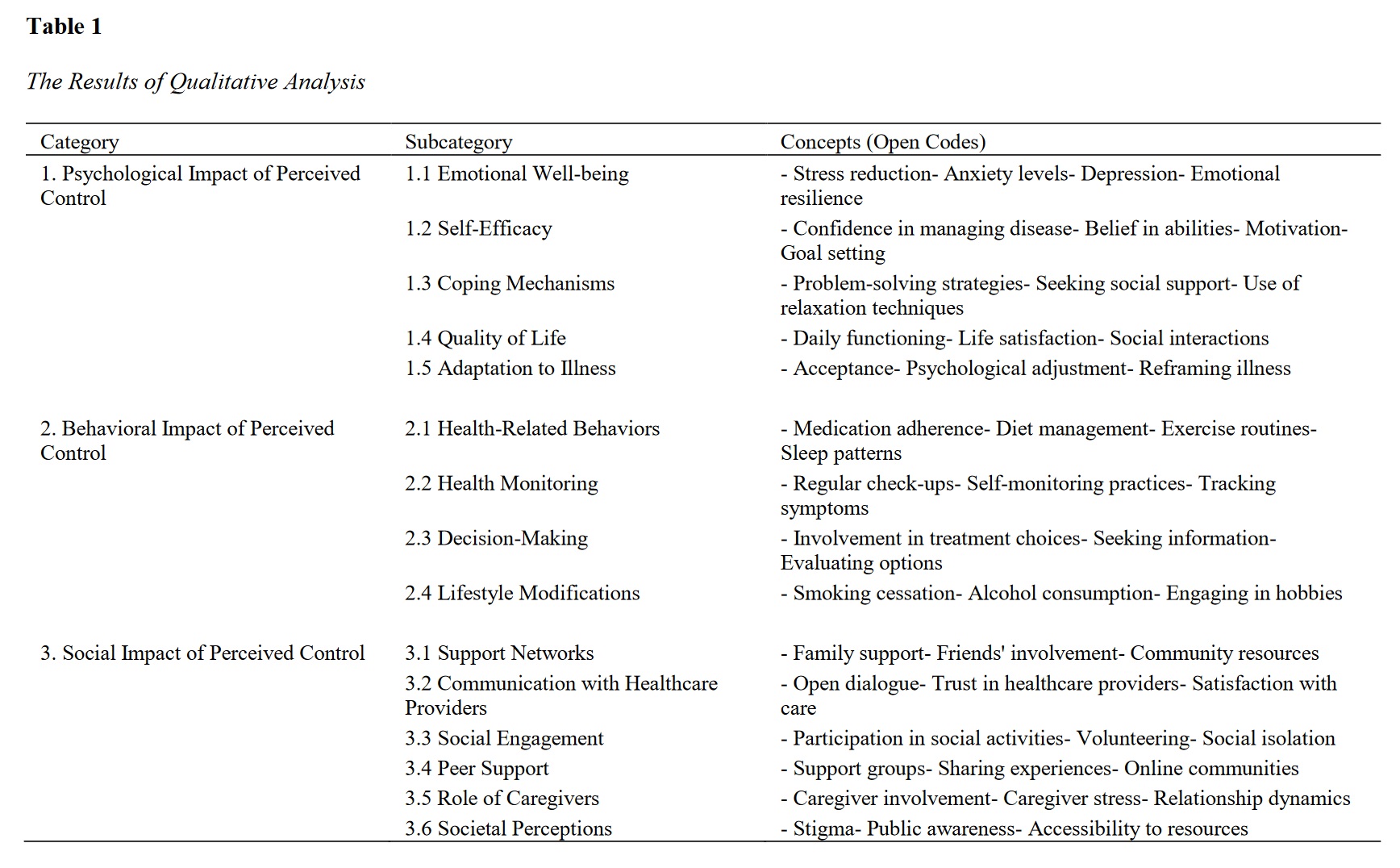Influence of Perceived Control on Health Outcomes in Chronic Disease Patients
Keywords:
Perceived control, chronic disease, health outcomes, psychological well-being, health behaviors, social supportAbstract
This study aimed to explore the influence of perceived control on health outcomes among chronic disease patients. By understanding how perceived control affects psychological well-being, health-related behaviors, and social interactions, the research sought to provide insights into improving chronic disease management. A qualitative research design was employed, utilizing semi-structured interviews to gather in-depth data from 20 participants diagnosed with various chronic diseases, including diabetes, hypertension, and chronic obstructive pulmonary disease (COPD). Participants were selected through purposive sampling to ensure diverse representation. Data collection continued until theoretical saturation was achieved. The interviews were transcribed and analyzed using NVivo software, following a thematic analysis approach to identify key themes and patterns. The study identified three main themes: psychological impact, behavioral impact, and social impact of perceived control. Participants who reported higher perceived control experienced lower stress and anxiety, higher emotional resilience, and better self-efficacy. Health-related behaviors such as medication adherence and regular health monitoring were positively influenced by perceived control. Social support from family, friends, and healthcare providers also played a crucial role in enhancing perceived control. For instance, 75% of participants indicated that a strong support network improved their ability to manage their disease, and 65% noted better health outcomes due to effective communication with healthcare providers. The findings underscore the significant impact of perceived control on the health outcomes of chronic disease patients. Enhancing perceived control through health literacy, social support, and integrated care can lead to improved psychological well-being, healthier behaviors, and better health outcomes. Future research should focus on larger, more diverse samples and longitudinal studies to further explore these relationships. Practical implications include developing educational interventions and support systems to foster a greater sense of control among chronic disease patients.
Downloads

Downloads
Additional Files
Published
Issue
Section
License
Copyright (c) 2024 Erwin A. William (Corresponding Author); Amos Magut, Seyed Amir Saadati (Author)

This work is licensed under a Creative Commons Attribution-NonCommercial 4.0 International License.






